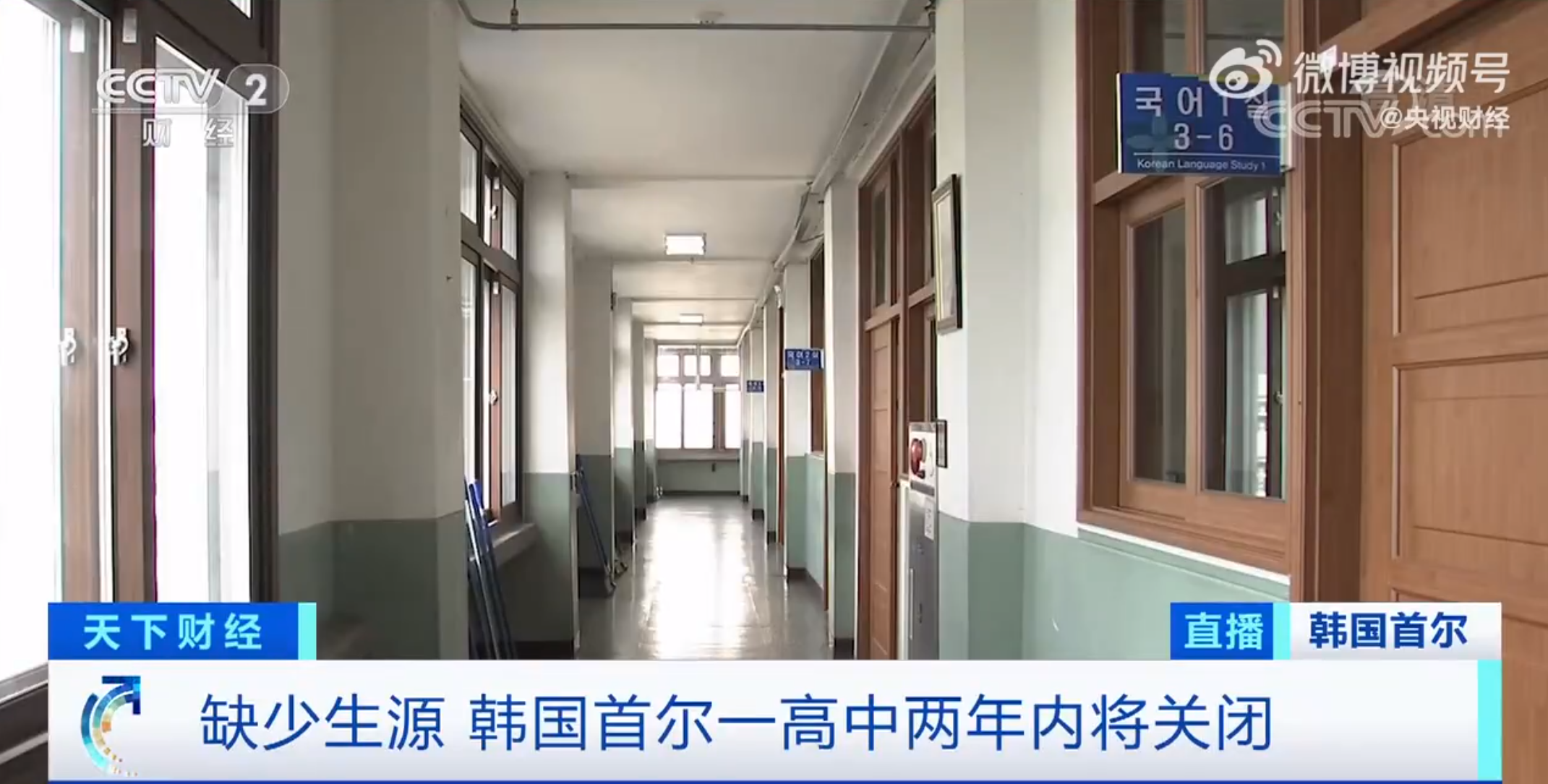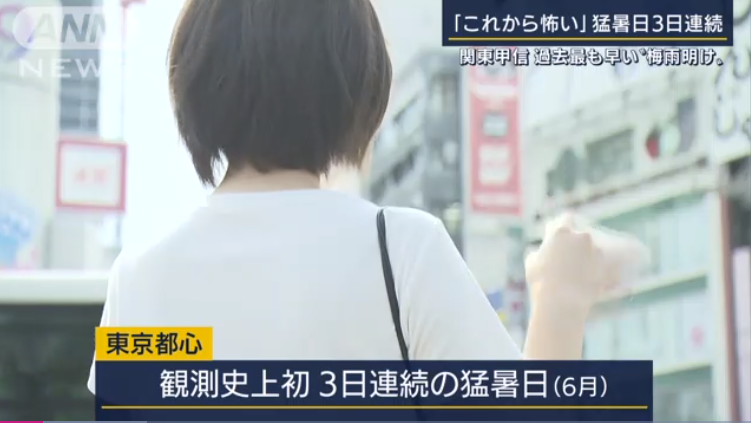South Korea refreshes the world's lowest fertility record!The first high school in Seoul has only recruited 45 freshmen, announced that it will be closed within two years.
Author:Daily Economic News Time:2022.08.28
According to CCTV today, South Korea's fertility rate has repeatedly appeared in recent years. Due to the decrease in school -age population, more and more schools are unsustainable. Recently, Daofeng High School in Seoul City announced that it would be closed within two years. This is the first ordinary public high school to decide to close due to lack of students in Seoul.
South Korea's primary and secondary schools have been admitted to the nearest school. Despite the good location, Daofeng High School only recruited 45 freshmen this year. After discussing with parents, the school finally decided to let the college students transfer collectively. From next year, no longer enrolled students. After all the students of the senior year and third grade graduated, they will be closed in 2024. Although Seoul is densely populated, the fertility rate is not as the average level of South Korea. At present, there are still six other middle schools in the city that are considering closing or merging.

Picture source: Screenshot of CCTV Finance Video
Since 2015, the total fertility rate of South Korea has fallen year by year, and it has fallen to 0.81 last year. It is the only country in the developed economy with a fertility rate of less than 1. According to the latest data from the South Korean education department, the school -age population is reduced due to the low fertility rate. As of 2020, South Korea's abandoned and vacant primary and secondary schools have reached more than 1,400. In the past two years, in addition to remote areas, schools in large cities have not been able to support it.
With the rise of prices this year, the economic burden of parenting is getting heavier, and the willingness to fertility of South Korean people has further reduced. Many couples said that the price increases for maternal and infant supplies such as milk powder can still be acceptable, but the cost of childcare to see the child's cost is "outrageous." For example, the monthly salary of the home parenting and childcare is about 20,000 yuan, which is equivalent to more than 60 % of the monthly income of ordinary families. Even so, because of the shortage of people in the nanny market, it is difficult to find a better parenting.
This week, the South Korean Department of Statistics released the population trend show that the number of new Korean newborn in South Korea in the second quarter of this year was less than 60,000, a decrease of nearly 10 % year -on -year, and fell to the lowest time since statistics. As population problems have brought crisis to education and medical care, South Korea has increased the distribution of parenting subsidies this year, and allows couples to apply for parenting leave at the same time.
The newborn population fell, and South Korea refreshed the world's lowest fertility record record
According to China News Service on the 26th, data from the South Korean Department of Statistics on the 24th show that the total fertility rate in South Korea in 2021 decreased by 3.4%year -on -year to 0.81, refreshing the world's lowest fertility record. At the same time, the number of newborns was 260,600, a decrease of 4.3%year -on -year, which also refreshed a record low.
According to the Yonhap News Agency, among the 38 member states of the Economic Organization, South Korea is the only country with a total fertility rate of less than 1.
South Korea has counted the newborn population since 1970, and the number of newborns has exceeded 1 million. However, after entering the 21st century, it fell in a cliff, falling below 600,000 in 2001, falling below 500,000 in 2002, less than 400,000 in 2017, and further declined to less than 300,000 in 2020.
The South Korean Department of Statistics said that according to the age of fertility, the fertility rate of women aged aged ages aged 25-35 decreased year -on -year, and the fertility rate of women over 35 years of age increased year -on -year. Late marriage and late childcare have become the general trend, but the fertility rate of women aged 25 to 35 has decreased, resulting in the overall decline of fertility.
According to the United States "New York Times", the current Korean society has been affected by the low fertility rate and the problem of aging population is serious. The school is facing the problem of students' shortage. Pensions of retirees. The population of South Korea has shrunk in the past two years, and the population may decline sharply within the three or four generations.
The report also said that although the South Korean government has known this situation for many years, it is imminent, but it cannot solve the problem of decline in population. In response to the problem of low fertility in South Korea, the New York Times quoted Lee Samsik, a professor of policy science at Hanyang University in Seoul, said that "the government should invest more resources in children's conservation, increase employment opportunities for young people, provide more housing, and adopt adoption Policies attract immigrants. "
South Korea had previously planned to advance the age of elementary school to 5 years in advance
CCTV News reported on August 2 that the Ministry of Education of South Korea proposed that plans to advance the age of elementary school to 5 years in advance were strongly opposed by all sectors of South Korea. South Korean President Yin Xiyue instructed the Ministry of Education on August 2 to conduct public discussions on this matter.

Picture source: Xinhua News Agency
An Xiangxun, the chief secretary of the Society of South Korean President's Secretary, said on August 2 that the South Korean President Yin Xiyue instructed the Ministry of Education to quickly publicly solicit opinions from the primary school admission ages from 6 years old to 5 years old, and promoted cross -party discussion of Congress.
On July 29, the Ministry of Education of South Korea announced the plan to advance the age of elementary school from 6 to 5 years old to cope with the problems of low fertility rate and serious aging in South Korea, and shrink the gap between preschool education. Once the plan was announced, it caused strong opposition from all walks of life.
Park Shunai, deputy prime minister and chief of the Ministry of Education Park Shunai on August 2, said in a discussion with parental groups in the Central Government's Seoul Office Building that the age of elementary school enrollment must be carried out on the premise of reaching a national consensus. policy.
Daily Economic News integrated from CCTV News, Chinanews.com
Daily Economic News
- END -
Tokyo, Japan is rare in high temperature weather, hundreds of people are suspected of heat stroke within a day

Tokyo, Japan, Lianri Summer (Japanese TV)Overseas Network, June 28th. According to...
The 62 -year -old Chinese man was abandoned near the California Desert: There was a suspect on a gun

California Police (Data Map) Overseas Network June 8th. Comprehensive \M...